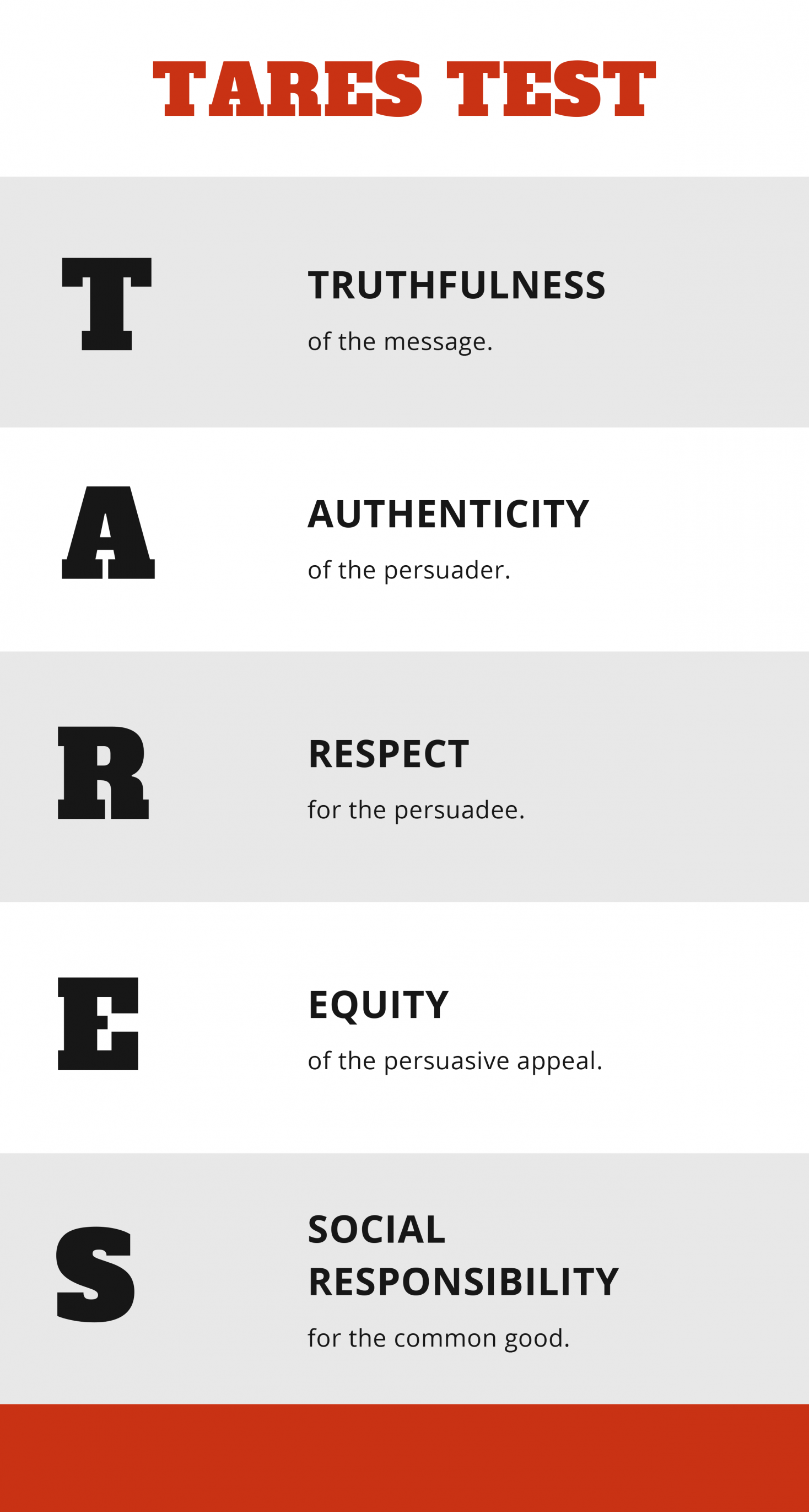The TARES Test
An important part of ethical decision making is the ability to defend your choices. To aid in this process, we will examine the TARES test as a guide for making and defending ethical choices. The TARES test was developed by Baker and Martinson (2001) to focus on five principles for ethical persuasion. This framework functions under the theory of utilitarianism, which maintains that the results of an action are equally important to the action itself when evaluating its ethicality (Patterson, Wilkins, & Painter, 2019).
TARES is an acronym for truthfulness (of the message), authenticity (of the persuader), respect (for the persuadee), equity (of the persuasive appeal), and social responsibility (for the common good). These attributes are echoed throughout varies codes of ethics in the communication field including that of the Public Relations Society of America.
